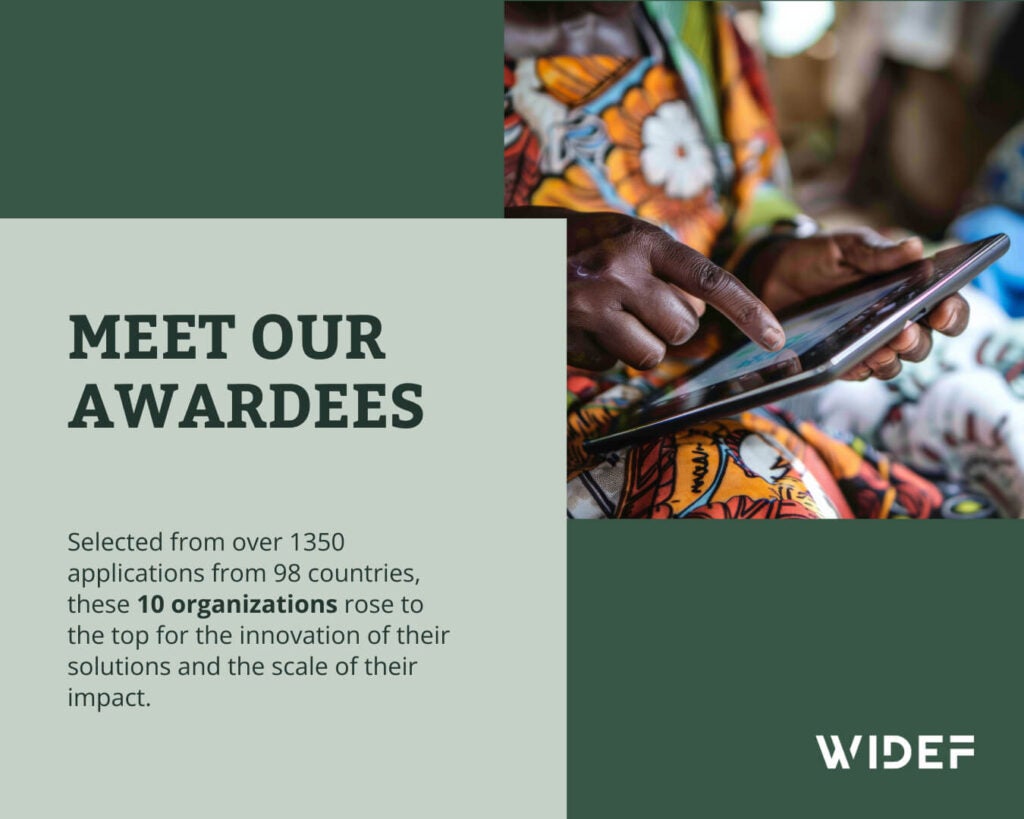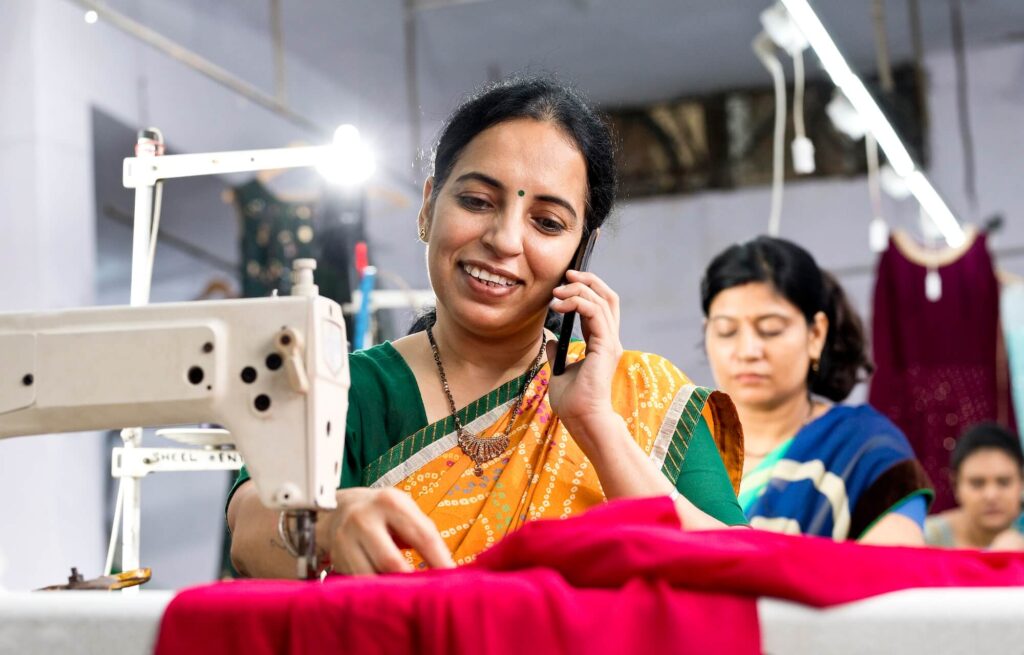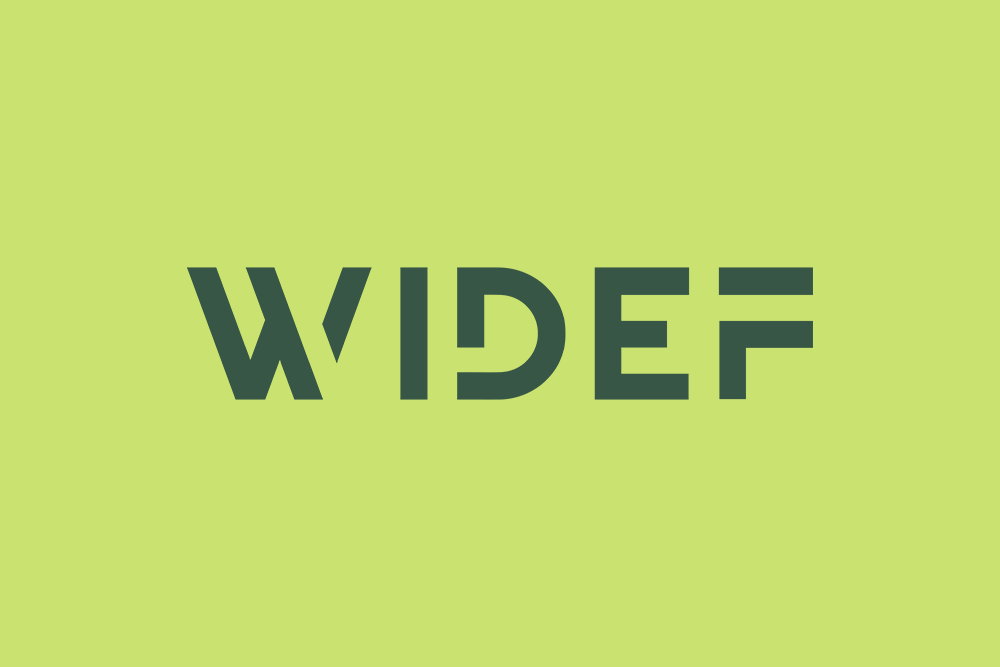Home WiDEF Announces Semifinalists in First Round of Awards
Washington D.C., September 9, 2024 – The Women in the Digital Economy Fund (WiDEF) is pleased to announce the semifinalists for its first round of awards. This diverse group of twenty entities represents exceptional work across sixteen countries to address gender digital inequities and connect women with technology in meaningful, sustainable ways.
“These semifinalists represent the future: putting resources and support in the hands of the local organizations best placed to define and deliver lasting solutions. By supporting locally-led efforts, we hope WiDEF not only significantly improves women’s inclusion in the digital economy but also provides a model for putting localization at the center of digital inclusion efforts more broadly,” said Dr. Revi Sterling, WiDEF Technical Director.
The call for proposals received over 1,350 applications from 98 countries, showcasing the urgency of addressing digital inclusion and the impactful efforts being made in local communities. Among the semifinalists, 85 percent are women-led organizations, reflecting WiDEF’s commitment to supporting women-led, gender-transformative solutions. These organizations work to overcome key barriers to equitable digital inclusion, including access to affordable devices, availability of relevant tools, digital literacy, safety, and restrictive social norms. The group was selected through a multi-stage review by an external panel of industry experts based on their solutions’ clarity, impact potential, and evidence of previous successes.
Dr. Karen Smit, Accessibility Lead at Vodacom and WiDEF Advisory Council member, noted, “We are excited about the range of projects and programs selected, as they will enhance women’s participation in digital society and help narrow the gender digital divide.”
The WiDEF Round 1 Semifinalists are:
- BASAbali Wiki (Indonesia): Uses the BASAbali wiki and “wikithons” to engage young women in civic discussions, reaching over 4 million youth users.
- CITAD (Nigeria): Focuses on digital skill-building, internet access, and gender equality advocacy in northern Nigeria.
- CIRCLE Women’s Association (Pakistan): Deploys Generative AI and IVR-based training in Urdu for women without smartphones.
- DEMO (Pakistan): Provides digital entrepreneurship training for 10,000 female university students in underserved regions.
- DOT Kenya (Kenya, Ethiopia, Rwanda): Empowers young women with digital and entrepreneurial skills to overcome social and economic barriers.
- Ensibuuko (Uganda, Tanzania, Ghana): Digitizes Village Savings and Loan Associations to improve financial management for 125,000 women.
- Gerege Systems (Mongolia): Supports women-led businesses through a digital platform that offers B2B networking and financial training.
- Hacey Health Initiatives (Nigeria): Provides digital literacy, financial services, and business development support to marginalized women.
- KICTANet (Kenya): Boosts digital inclusion for rural women by offering digital literacy training and affordable device loans.
- New Sun Road (Guatemala): Provides electrification, internet access, and digital literacy to indigenous women in remote communities.
- Pathway Technologies and Services Limited (Nepal): Enhances digital access for rural women farmers, aiding in production and market connectivity.
- Player First Limited / MESH (Kenya): Empowers female entrepreneurs through an online platform for business management and customer engagement.
- Smart Regional Consultants (Kenya): Offers digital literacy to rural women, leveraging existing centers to influence policy and foster inclusion.
- Tech Project Women (Nigeria): Focuses on digital skills, financial inclusion, and combatting online harassment for women and girls.
- Think Web (Indonesia): Supports digital and entrepreneurial education for women in East Indonesia, including women with disabilities.
- El Proyecto Hambre (The Hunger Project) (Mexico, Malawi, Ghana): Increases internet access and economic participation for women and people with disabilities.
- WIT Uganda (Uganda): Connects women with job opportunities through an AI-based job matching and gig platform.
- Women in Digital (Bangladesh): Trains women in ICT skills and connects them with employment opportunities to foster economic security.
- WOUGNET (Uganda): Operates a digital hub in Northern Uganda to provide ICT development in agriculture, governance, and online safety.
- Zimba Women (Uganda): Provides digital and financial literacy training in local languages to women in Northern and Eastern Uganda.
WiDEF will announce the final awardees later this year. For organizations interested in WiDEF assistance, the fund is accepting applications from private enterprises seeking technical assistance to close the gender digital divide. More information is available at https://widef.global/funding.
About WiDEF
The Women in the Digital Economy Fund (WiDEF) is a collaboration between USAID and the Bill & Melinda Gates Foundation to advance gender digital equity. WiDEF supports and accelerates investment in proven solutions that promote women’s economic security, resilience, and digital inclusion. Managed by CARE, the Global Digital Inclusion Partnership, and the GSMA Foundation, WiDEF aims to close the gender digital divide by directly funding effective, sustainable initiatives.



